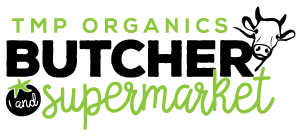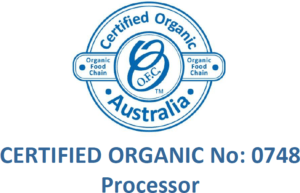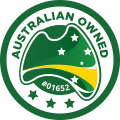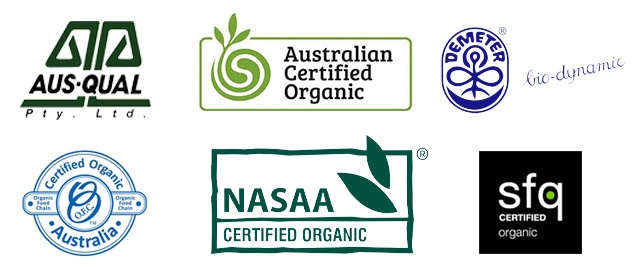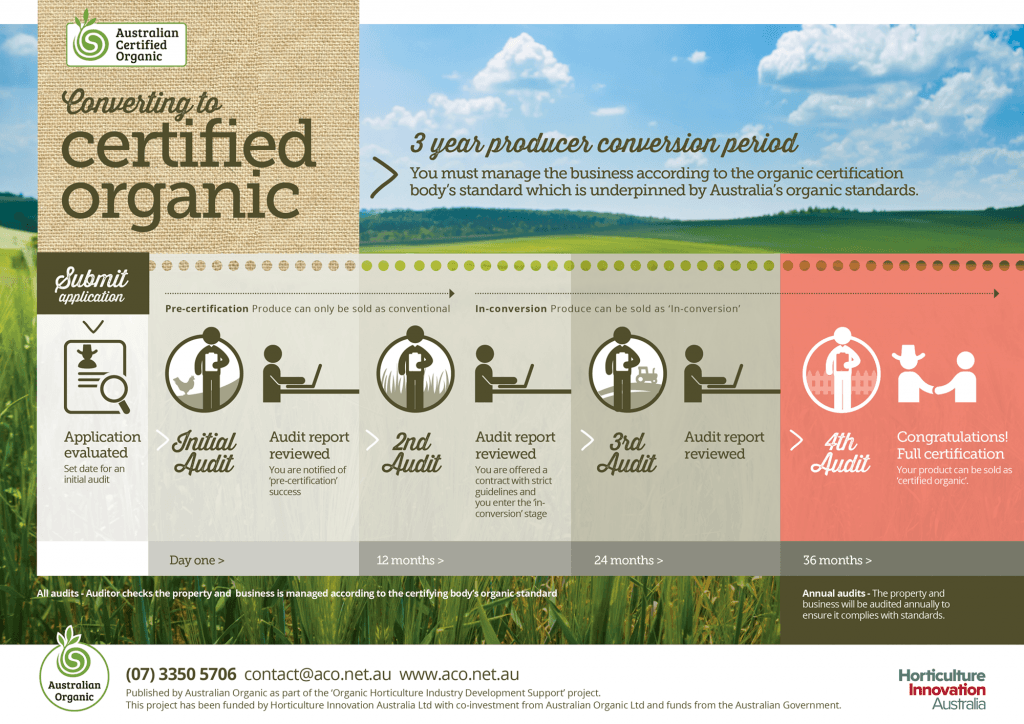Organic food and products are continuously growing in popularity. We don’t refer to organic living as a trend though, because, in reality, it’s how our ancestors lived before the introduction of synthetic herbicides, pesticides and GMOs.
Due to the increasing demand for organic products, there are of course some manufacturers and marketers who piggy back on the buzz-word ‘organic’, creating some ambiguity around what the term actually means and how its use is regulated. We’re here to clear up any confusion.
It’s important for the consumer to understand that Certified Organic products have been through rigorous testing, not just once, but on an ongoing basis. Australian Organic states that:
“Shoppers can trust products labelled with the Australian Certified Organic Bud logo because certified businesses are audited yearly and products are also randomly tested for residues. Australian Certified Organic tests over 100 certified organic products each year. In addition, Australian Certified Organic conducts unannounced audits and inspections of businesses. The samples are taken from markets, small shops and supermarkets. If in the unlikely event products show residues but are being sold as certified organic, Australian Certified Organic follows it up immediately with the retailer.”
According to the Department of Agriculture’s website, there are six Organic Approved Certifying Organisations in Australia. These are:
AUS-QUAL Pty Ltd (AUSQUAL)
Australian Certified Organic (ACO)
Bio-Dynamic Research Institute (BDRI)
NASAA Certified Organic (NCO)
Organic Food Chain (OFC)
Safe Food Production Queensland (SFQ)
Products certified organic in Australia:
- Do not contain Genetically Modified Organisms (GMO’s)
- Do not contain synthetic additives
- Do not use chemical insecticides, herbicides or fungicides
- Have not been treated with ionising radiation
- Do not interfere with the natural metabolism of livestock and plants, and
- Are not manufactured or produced using nanotechnology.
Organic meat, poultry and fish are:
- Free range
- Raised humanely
- Non GM
- Pasture fed
- Sustainably fished
- Biodiversity friendly
- Grown free from synthetic pesticides, herbicides, hormones and antibiotics
The application and auditing process for producers wanting to become certified organic isn’t quick or easy. While no one wants to deter farms from converting to organic practises due to lengthy timeframes and red tape, the upside is that consumers can place their trust in the certifying bodies and the products displaying their logos.
Although there are strict regulations adhered to by certified organic producers and manufacturers, there are no regulations around the use of the word ‘natural’, and while the ACCC states that misleading, false or deceptive organic claims are against the law, some companies continue to market their products as organic.
Always be sure to look for a legitimate certifying body’s logo on a product’s packaging, or at the very least, look at the ingredients list. If a product claims to be organic or natural, the ingredients may give it away. Some products may contain one or two organic ingredients, with the remaining 90% being harmful or unhealthy.
What about products that don’t have packaging, for example meat and produce? When TMP Organics’ meat is not on a tray or packed and displayed in our meat window, we display our OFC certified Organic badge. TMP Organics, like many retailers, gets audited every year. Each product that is certified Organic has to have the OFC badge displayed on it and listed on our Certified Organic certificate which is on display for everyone to see. Our produce has the certification number of the farmer displayed on it and paper work from the farmer to back this up.
We look forward to seeing you in-store this week!
